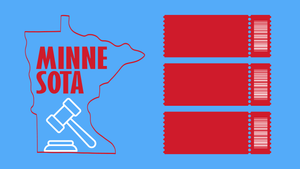While various proposals for regulating the ticketing market continue to be debated in US Congress, some US states are passing new rules in relation to secondary ticketing. The governor of Minnesota signed new ticket resale rules into law earlier this week, and Maryland is set to introduce similar regulations.
“We’re protecting consumers and holding ticket resellers accountable in Minnesota”, Governor Tim Walz wrote on X yesterday. Referencing the basketball team of Minneapolis, he later posted, “Whether Minnesotans are selling out Target Center to cheer the Timberwolves or catching a concert, they’re paying too many hidden fees. This law will change that”.
The new rules in Minnesota prohibit both drip pricing and speculative selling, two practices in secondary ticketing that are frequently criticised. Drip pricing is where one price for a ticket is declared upfront but then fees are added later in the transaction. Speculative selling is where touts - or scalpers to use the American term - advertise for sale tickets they don't yet have access to.
Regulation of secondary ticketing varies greatly around the world and, in the US, from state to state, although the use of bots to buy up tickets from primary sellers is prohibited across the US by federal law. Until recently, there seemed to be less support for stricter regulation of ticket resale in the US, especially when compared to Europe, although that has started to change.
The meltdown that occurred when tickets for Taylor Swift's 'The Eras Tour' went on pre-sale in November 2022 put the entire ticketing sector back into the political spotlight, with various new laws being subsequently proposed in Congress. Both primary and secondary ticketing, plus the dominance of Live Nation and its Ticketmaster subsidiary, have been scrutinised by Congress members over the last eighteen months.
However, similar proposals in some states seem to have got more momentum behind them. The new laws in Minnesota were also prompted by the Swift ticketing meltdown, with a sneaky Swift reference included in the official title of the new legislation, House File 1989.
At one point lawmakers in Maryland were considering a much more radical proposal that would have basically outright banned the resale of tickets for profit, by putting in place a face value price cap on any resale transaction. That is now off the agenda - so that the new rules will be more like those in Minnesota - although lawmakers will ask the Maryland Attorney General's Office to undertake a study into the potential impact of resale price caps.
Most ticketing companies - both primary and secondary - generally say they support being forced to display the total price of a ticket upfront, happy to do such a thing providing it is an industry-wide practice. Resale sites also generally don't outright oppose rules around ticket buying bots and speculative selling. But any regulation beyond that is strongly opposed.

